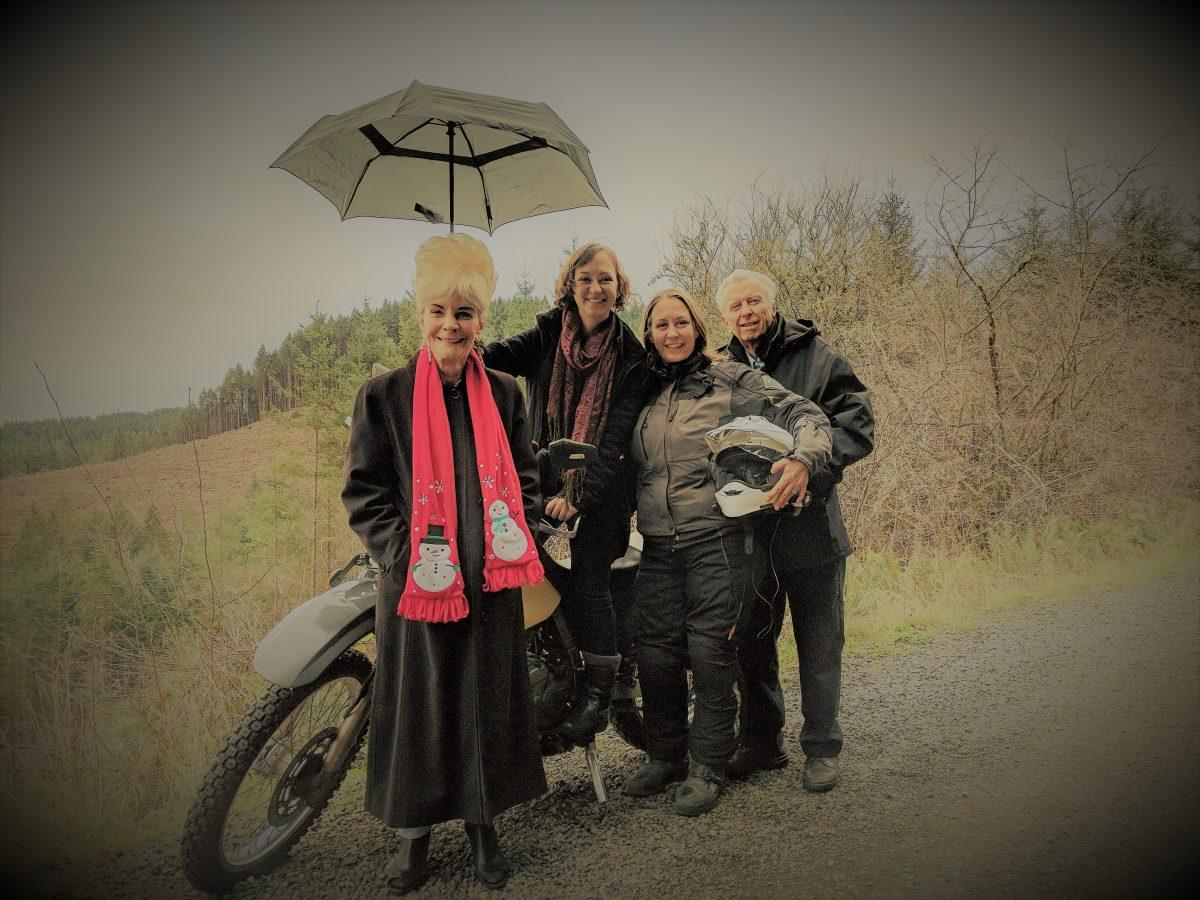
Raising Adventurous Children
Every parent begins the process of raising a child with a mixture of hopes, dreams, and fears. And though each child is born with a temperament encoded in their DNA, fostering the right attitudes at home guides our children to become adventurous and confident adults with a passion for learning and exploring.
As a mother with a background in developmental psychology, the lessons I learned about child development have proven to be profoundly important to the development of my own daughter. So what can we do to raise adventurous children?
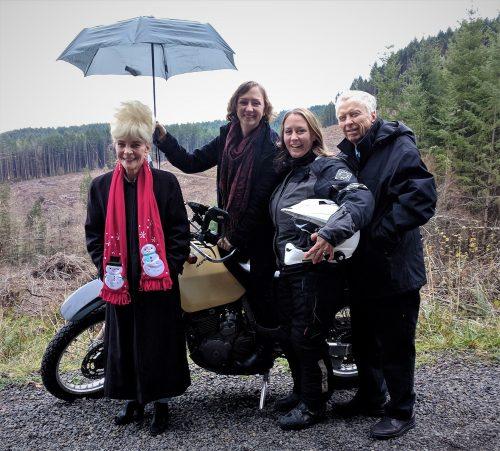
In their early years, children develop their understanding about how the world works and their approach to the world by observing their parents. The key to adventure is about having the right attitude, and self confidence comes from successfully completing a task or goal. Making mistakes is part of the process, and with each mistake a lesson is learned and a skill is gained. Our children develop this attitude first by observing the attitude toward challenges in the home. As adults we can role model this by treating each challenge as a learning opportunity, like researching home repairs and vehicle troubles on YouTube before calling in the experts.
Providing real experiences contributing to the family and household allow our children, male and female, to work toward becoming independent adults throughout their life. This self reliance is what sows the seeds of an attitude of adventure over the lifespan. To do this, adapt the home environment to the child. Stools help little hands reach sinks and counters, low shelves and drawers make dressing an independent activity. In the Montessori tradition, I taught my daughter how to safely use knives, graters, and stoves before the age of five. She was a genuine help around the house from a very young age!
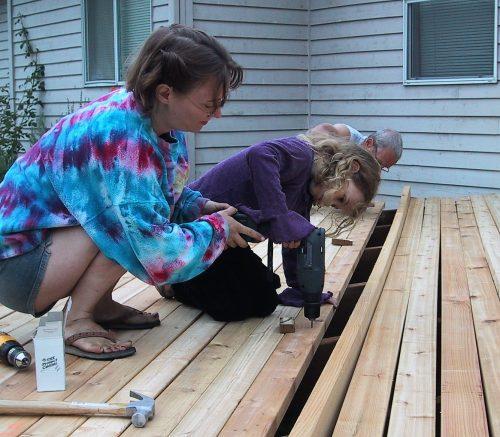
We can encourage an attitude of adventure by treating children with the same respect we treat all people. Their youth gives them a unique viewpoint of the world, and when we learn to see the world through their eyes, we show them that their thoughts, feelings, and words are a valuable contribution to discussion. It is also important to provide toys that help children explore mentally, physically, and creatively, despite arbitrary gender biases. Research shows that preschoolers enjoy gender neutral toys equally, until they are pulled out of a box that is labeled “boys” or “girls.” Then their level of engagement and report of enjoyment decreases if the toy is pulled out of a box incongruent with their gender.
When I was growing up, my mother and I often traveled on school holidays while my dad worked. I explored neighborhoods on my own, acquiring bruises and scars and learning lessons I still carry. She taught me about personal safety, keeping my head up, looking people in the eye, and most importantly, never being sorry for my existence. My dad also shared his knowledge, skills and passions. While working on a electrical project, he would sit me down with my own bag of wire and a set of pliers, encouraging me to strip as much wire as I wanted. We did science projects together where I learned about resistors, capacitors, and most importantly, soldering, which I still love. He also taught me to windsurf. Little itty bitty me; I started in a boat he’d pull behind his windsurfer as he learned. Then, I’d sit on his board as he grew in confidence. As soon as I could lift a sail, I had my own rig, and flying across the water while the power of the wind fed my soul. We tried to teach many a visiting boy, all assuming that if I could do it, they could learn just as easily. And many a boy I rescued from the downwind weeds and sailed the board back to the dock; I may have been tiny, but my adventurous spirit and skill never left me stranded.
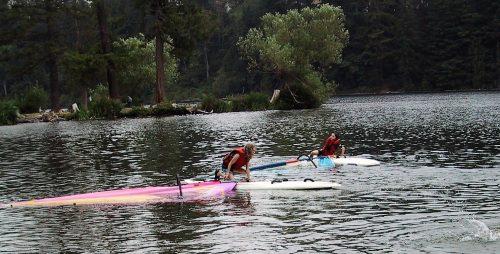
I gave birth to my daughter when I was studying developmental psychology., and learned things that were useful in helping my daughter develop her own self confidence. First, I learned about how to provide a secure attachment. When an infant has a need, responding promptly and accurately teaches them that the world is a safe place to explore. When an infant cries, it is because they have a need and have no other voice with which to express it. Infants who learn that their needs will be met cry far less at age one than infants who were left to “cry it out”. Giving babies what they need leads to greater independence later (Narvaez, 2011) and those cheerful toddlers are more ready to safely and confidently explore their environment.
As in motorcycles, young children will go where they look. Warning children repeatedly to be careful shifts their attention away from the necessary task of walking, running, and climbing, while saying “don’t fall” increases their chances of falling. Using positive language such as “hold on tight” evokes a mental picture of what to do, and helps them reach new heights. As parents, we must safe spaces to let children explore and to kiss the owies that inevitably happen.
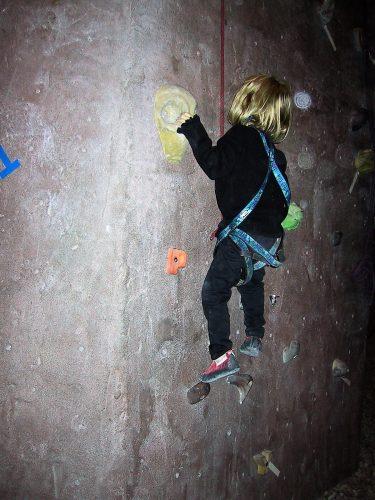
Nature is immensely important for child development, and encouraging children to be outside, rain or shine, is another way to encourage an attitude of adventure. We were lucky to find a preschool in Seattle that valued daily interactions with nature, and had the kids play outside every single day. When my daughter entered elementary school, we started homeschooling and found an amazing wilderness program. Experienced nature guides taught survival skills that included everything from creating shelters, building fires, and sitting quietly to observe their surroundings. In this process, the children learned to feel safe in situations where many of their peers felt unsafe. They were confident they could find appropriate shelter in extreme conditions, or even feed themselves if left to their own devices. Because of my affinity for individual outdoor hobbies she and all of her friends also learned to windsurf, along with kayaking, hiking, rock climbing, and skiing.
As a homeschooler, she was always at the top of her class. Having no competition means there is literally no limit to how much you can learn. Homeschooling allows each child to be celebrated for their unique skills, and when given creative freedom and space, people will push themselves well past any goals a school sets. In this process, the spirit of adventure is molded. This is not to say that homeschooling is a necessary part of developing self confidence, but developmental psychology offers important lessons here. Allowing children to follow their passion will increase the depth of their learning and understanding. Focusing on learning over earning grades will help children develop their interests, and we can teach kids to see grades as a game, the necessary hoops they must jump through to keep their adult options open, while leaving plenty of time for real world experiences and pursuit of passions.
Junior high and high school is a time when many girls turn away from sciences and sports. To encourage our youth to enter these fields, we first must examine our own biases and behaviors. How often do we tell our girls they are beautiful and our boys they are intelligent or strong? Social media can be a great experiment for this. Post a picture of your daughter and your son, or check out your friends posts. Do the comments discuss looks or personal attributes? Even when we think we don’t have bias, we have centuries of programming working on our subconscious mind. If you’d like to check on your social attitudes, THIS is a great site to get you started.
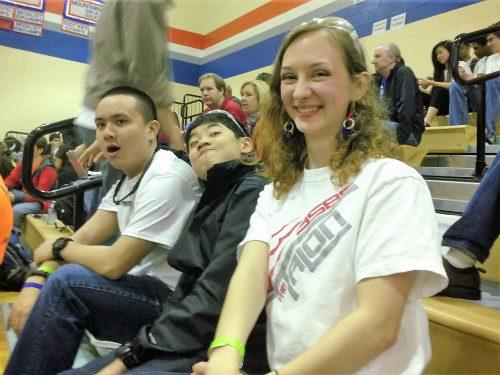
Entering high school, my daughter’s dad encouraged her to try out for a sport; he felt the teamwork, camaraderie, and working to fulfill a goal would be valuable life lessons. She studied all of the clubs and sports, and came home with a proposal. “Robotics is just like a sport. You work on a team, you compete against other teams, and have to meet goals.” There was no way to argue that logic, and four years of robotics turned into a BS in Mechanical Engineering she will be finishing this spring. She has more interests than time, but 3D printing and swing dancing are two of her current passions. She often finds herself as the only female in situations, but rarely notices; her spirit of adventure and confidence transcend gender stereotypes.

Our children may choose different adventures than we chose—I know my parents are surprised at my passion for off-road motorcycles. I don’t know if my kiddo will ever pursue a power sport, but I do know she holds the attitude of adventure near and dear to her heart. She is confident, open minded, and enthusiastic, and I fully believe she can do anything she sets her mind to.
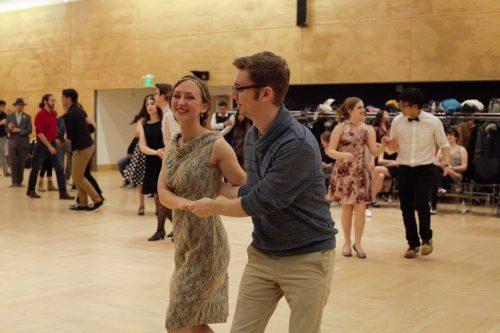
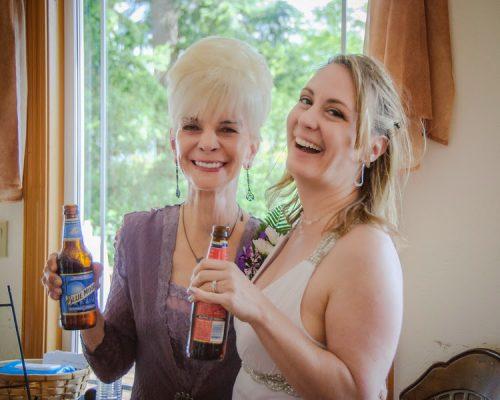
Interested in attachment, nature, and research around raising girls? Check out these books on Amazon!
Interested in exploring your own biases? Check out Project Implicit https://implicit.harvard.edu/implicit/
Interested in more on this topic? Check out Lynda’s article HERE!
